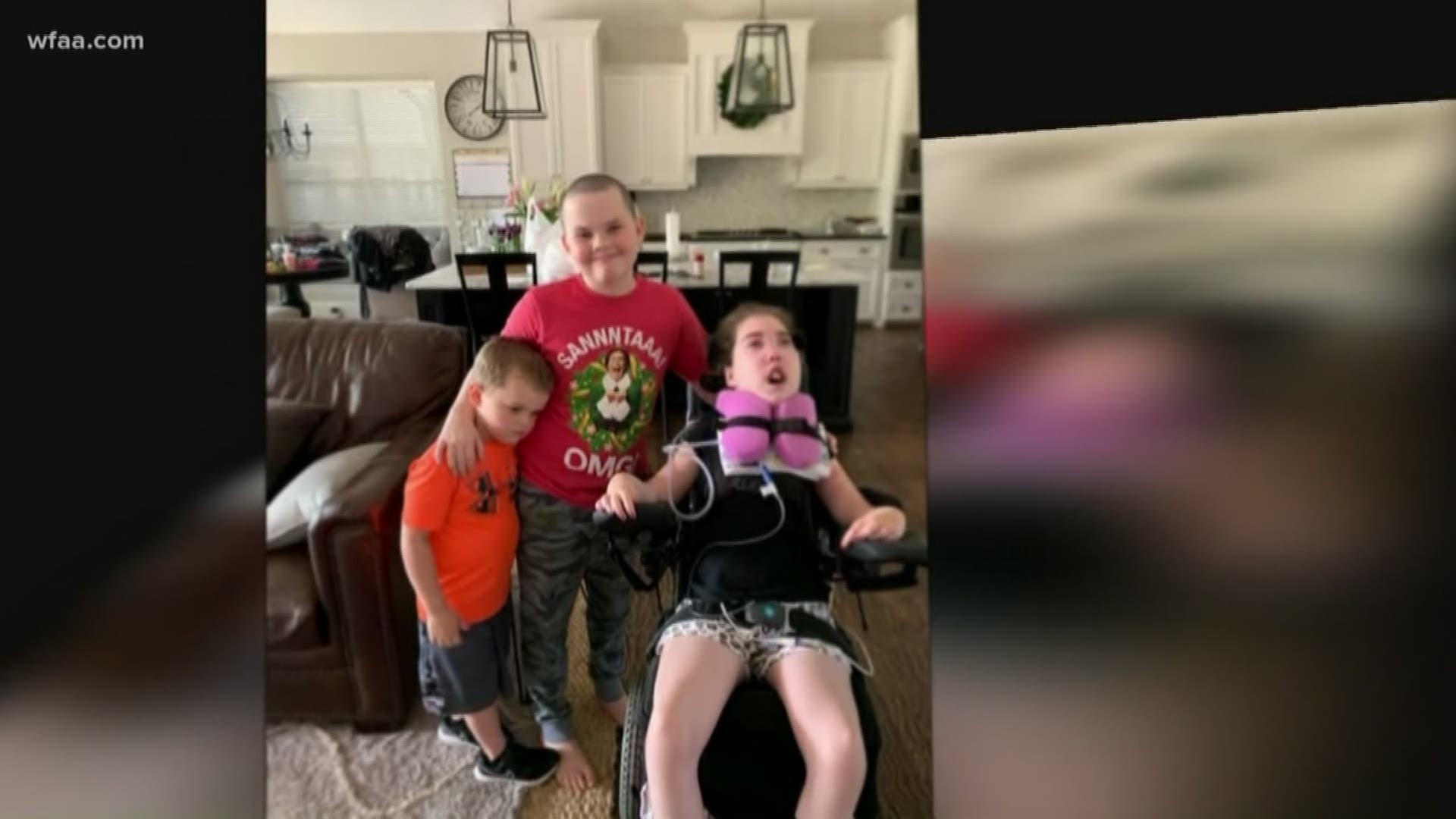FORT WORTH, Texas — Jayme Ellis loves riding the school bus, but it no longer comes these days.
“She doesn’t understand,” said her mother, Marisa Ellis of Prosper. “She hands us her backpack and I’m ‘No, not today.”
Jayme is 18 and has the mental capacity of a toddler.
She is one of the 500,000 special education students now affected by the closure of the schools across Texas due to the COVID-19 pandemic.
Families like Jayme’s lost a lifeline when schools shut their doors.
“I understand the whole spread of the disease, but I don’t think these kids were taken into consideration,” her mother said. “She wants her routine back. If we get her up, fed and dressed, she expects to go school.”
For all kids, structure is important. For special needs children, it’s crucial and school was a big part of it.
“They relied on that six-hour-a-day structure,” said Keriann Wilmot, a pediatric occupational therapist who works with Jayme and other special needs children. “It’s hard to educate kids with severe special needs on a daily basis anyway.”
While many families are trying to teach their kids through online learning, that really isn’t possible with a kid like Jayme.
Both Marisa and her husband have jobs that can’t be done at home. She struggles to find sitters so she can go into work and help pay the bills.
Jayme has seizures and can only be left with someone trained to handle them.
“I told work for as many hours as I can find a sitter, I will come in and help, but I’m kind of at mercy of everything else,” Ellis said.
Sarah McLain, who advocates on behalf of special needs families, said families like these are struggling with a new normal.
“There’s a lot of single moms out there that have a special needs child and they’re able to go to work because their child goes to school, and now their child has to be at home,” she said.
Now that mom can’t work, how does she pay the bills or for medications? McLain asked.
McLain is herself the parent of a 13-year-old special needs child.
Her daughter, Allison, was born with a rare genetic metabolic disorder. She cannot speak. She suffers from seizures. Her airway must be suctioned.
Nurses come in during the day and at night during the weekdays.
“She doesn’t swallow sufficiently enough to protect her airway,” McLain said. “She doesn’t blink sufficiently enough to protect her eyes.”
Right now, McLain knows that Allison is safer at home than at school. With a compromised respiratory system, getting COVID-19 could be a death sentence.
“The way that people feel about the pandemic is the way we already felt about the flu,” she said.
She is also the mother of two rambunctious boys she is now trying to home school. When Allison is in school, it was a break for her mother and gave Allison a better of quality of life.
“I’m thankful that we have a nurse but it’s also not the nurse’s job to educate her which is also why she goes to school with Allison,” McLain said. “The teacher educates and the nurse provides nursing care.”
Both mothers now know that the school bus probably won’t come again until next year.
“Where does that put kids and kids like her?” Ellis said.
More on WFAA:
- Photo captures the struggle and resolve of high school seniors during COVID-19 crisis
- PHOTO: Teacher comes to student's house to help with math problem through door
- High school senior helping young people lead the fight against COVID-19
- Prom was canceled, so these parents surprised their daughter with an at-home party
- Dallas ISD begins meal deliveries to make sure students in need are fed

